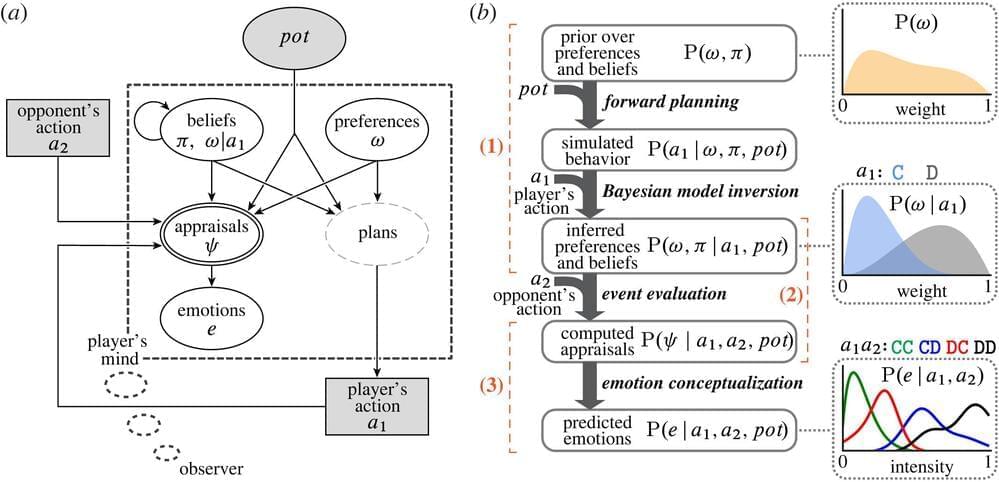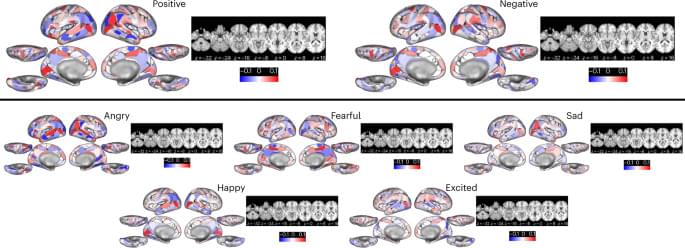When interacting with another person, you likely spend part of your time trying to anticipate how they will feel about what you’re saying or doing. This task requires a cognitive skill called theory of mind, which helps us to infer other people’s beliefs, desires, intentions, and emotions.
MIT neuroscientists have now designed a computational model that can predict other people’s emotions—including joy, gratitude, confusion, regret, and embarrassment—approximating human observers’ social intelligence. The model was designed to predict the emotions of people involved in a situation based on the prisoner’s dilemma, a classic game theory scenario in which two people must decide whether to cooperate with their partner or betray them.
To build the model, the researchers incorporated several factors that have been hypothesized to influence people’s emotional reactions, including that person’s desires, their expectations in a particular situation, and whether anyone was watching their actions.







